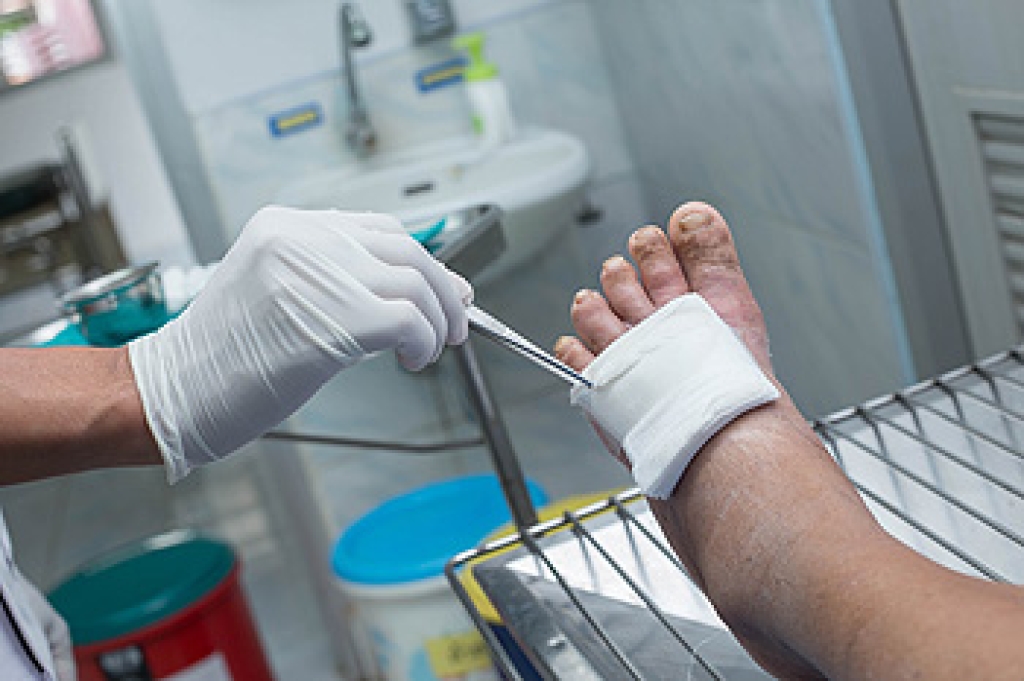
Those with diabetes must make sure any foot wounds are treated in a timely manner and heal properly. A foot wound is any break in the skin of the feet, such as a cut, blister, or ingrown toenail. An exposed wound can form into a foot ulcer and raise the risk of infection, gangrene, and possible amputation. Because diabetics often develop peripheral neuropathy and lose feeling in their feet, they may not feel or notice such wounds. It is important for diabetics to regularly check their feet or have them checked for swelling, red or discolored skin, or changes in temperature to the skin to prevent such wounds and complications. Diabetics should make sure to wear footwear that fits properly and refrain from going barefoot. They need to use extra care because if wounds do develop they are likely to take more time to heal. Including a chiropodist among the specialists they see for their health care is a good idea given the seriousness of developing such wounds and leaving them untreated.
Diabetes can cause serious problems in the lower limbs if proper preventive measures are not taken and diabetic wound care is not performed. If you would like to learn more about caring for diabetic feet, please consult with one of our chiropodists from West Toronto Foot & Ankle Clinic Inc. . Our chiropodist can help you maintain the health of your lower limbs and your mobility.
Diabetes can lead to a host of foot and ankle complications, including:
- Poor circulation
- Peripheral neuropathy
- Diabetic foot wounds and ulcers
- Infection
- Corns and calluses
- Dry, cracked skin
- Nail disorders
- Hammertoes
- Bunions
- Charcot foot
If you have diabetes, you must be vigilant of any changes in your foot health. This is best done through daily foot inspections. Using a mirror to help you if necessary, look for any:
- Cuts, scrapes, sores, or wounds
- Bruising or discoloration
- Swelling
- Rash
- Foul odor
- Nail changes
- Hair loss
- Warmth and inflammation
- Deformities
- Lower limb pain
- Strange sensations (numbness, tingling, burning, pins, and needles)
If you have any questions please feel free to contact our office located in Toronto, ON .
